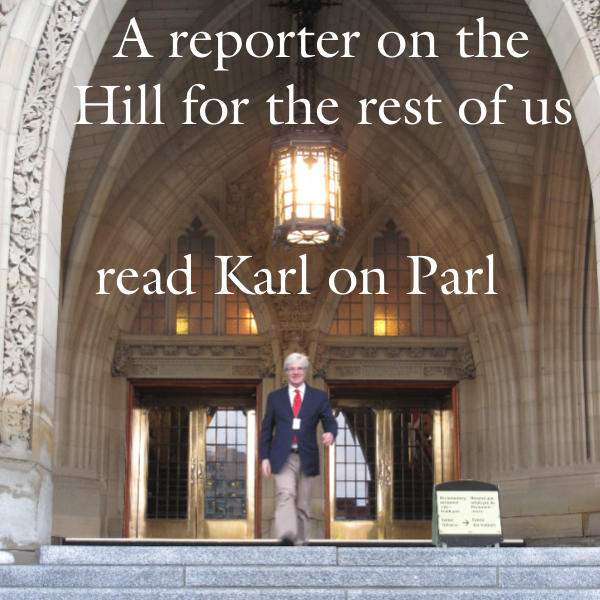You can change the conversation. Chip in to rabble’s donation drive today!
Is it possible to lift more than three quarters of a million Canadians out of poverty and create more than a quarter million new jobs annually?
Stephen Harper and Jim Flaherty don’t seem to think so.
You won’t be seeing any serious efforts to address under-employment, unemployment and economic inequality in the Conservative government’s budget next week.
Finance Minister Jim Flaherty has promised a modest, stay-the-course budget. In a way, that will be a relief after Flaherty’s two previous omnibus monsters.
The Canadian Centre for Policy Alternatives (CCPA) does believe the poverty reduction and job creation targets mentioned above are possible.
On the whole, in fact, the CCPA thinks “Canada can do better,” and tries to show how in its annual Alternative Federal Budget (AFB). It released the 2014 version on Wednesday.
The CCPA’s main fiscal strategy would be to seek increased tax revenue by closing loopholes and raising rates on higher income earners. It would then invest in what it calls “income supports” for those most in need.
The CCPA is rowing against the current, here, and it recognizes that fact. The AFB notes that our many years of austerity and single-minded focus on debt and deficits have impoverished Canadians’ collective economic imagination.
There is scary consensus out there that government is too big and unwieldy and has to continue to be pared down. Yet, the AFB points out, Canadian federal government spending, as a share of the economy, is now at its lowest point since the 1950s. Indeed, it is the lowest, the AFB says, of any industrialized country.
A heady list of daring program initiatives
The 2014 Alternative Budget proposes major infrastructure investments, a sectoral approach to developing more sustainable industry, and significant spending on agriculture, the arts, child care, health care and First Nations communities.
In the case of health care, the AFB proposes a national pharmacare program.
For First Nations, there would be major investments in education and skills training.
For the environment, there would be a Green Homes Strategy.
New infrastructure spending would include major investment in public transit and a national strategy to go with that investment.
It is an ambitious plan, and well worth reading, even if you can be pretty sure it is not sitting on of the Finance Minister’s desk.
And the CCPA plan is all costed and supported by detailed calculations. Over the years the CCPA has gained widespread respect for the professionalism and economic soundness of its work, even from those who don’t share the Centre’s progressive political views. The Alternative Federal Budget is not just a wooly minded economic pipe dream; it is a practical and achievable plan.
The CCPA keeps pushing this humane economic vision year after year, despite the prevailing political winds. Over time, it may succeed in changing the prevailing zeitgeist just a bit.
Right now, however, there is not too much mainstream political appetite for the CCPA’s ambitious and daring approach.
Question for NDP: What about the deficit?
That hard fact was vividly demonstrated by another pre-budget presentation that took place on Wednesday, on Parliament Hill, immediately after the CCPA’s.
This one was from the NDP.
MPs Peggy Nash and Guy Caron, the Official Opposition’s Finance and Deputy Finance Critics, presented a few small bore ideas that they, theoretically, hope might find their way into Flaherty’s budget next week.
The Official Opposition’s suggestions are not as big, bold and adventuresome as are the CCPA’s.
The NDP’s focus is on its new slogan: “affordability.” In that vein, the two critics are proposing limits on credit card interest rates, bank machine (ATM) fees and modest tax credits to encourage businesses to hire more staff, especially young people.
They also propose restoring a federal program that subsidized energy retrofits in homes, and suggest that the Conservatives should rescind their cuts to veterans’ services.
Nash and Caron made it clear that the Official Opposition will have more to say about how an NDP government would manage the economy, in a broader sense, when we get closer to an election. And they did point to accelerating infrastructure programs and modestly raising corporate taxes as two of the ideas we may be hearing from them, in more detail, in the future.
On the tax matter, Nash quickly added that the Party is absolutely not in favour of raising anyone’s personal income tax, no matter what their income.
The NDP is in the electoral politics game; the CCPA is not. And there’s the rub.
No party that is serious about replacing the current government would be so foolhardy as to propose economic policies that, according to the general media and insider consensus, are way out of the mainstream.
One got a clear sense of that consensus in reporters’ persistent questions to Nash and Caron about the NDP’s plans to eliminate the deficit.
Caron’s and Nash’s nuanced response that setting a rigid and fixed deficit target, regardless of economic circumstances, could cause more harm than good didn’t sit well with the reporters. The reporters wanted a date, a target, a firm commitment.
If the NDP aspires to take over government in 2015, the journalists argued, surely it knows what it will do about the deficit. The Conservatives know what they plan to do, after all.
Try as they might, the NDP’s Caron and Nash could not convince their interlocutors that the deficit is only one factor in the economic calculus — and that, in any case, the NDP is committed to eliminating the federal deficit within the business cycle.
Watching that exchange one could well understand why the NDP does not adopt anything like the CCPA’s Alternative budget as its own.
For now, the folks who get to make the actual, as opposed to Alternative, budget are Harper’s Conservatives. They will have their turn this coming Tuesday.
Like this article? Chip in to keep stories like these coming!




